Professional Plumbing Services in the UK
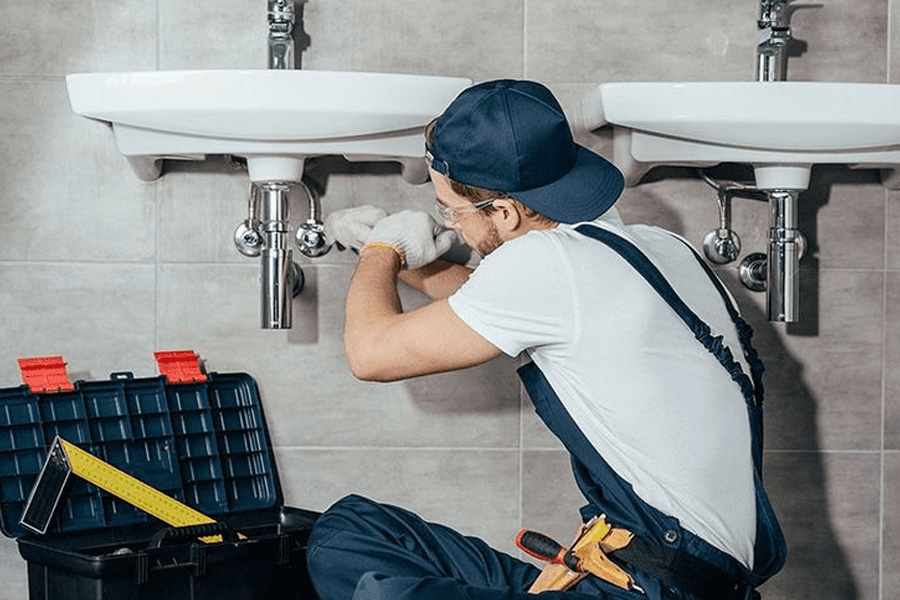
Across the United Kingdom, professional services for fluid conveyance systems are fundamental to daily life. These intricate networks of pipes and fixtures manage everything from clean water delivery to efficient waste removal. Their proper installation and maintenance are crucial for public health, sanitation, and comfort in both homes and commercial premises.
Today’s experts handle a diverse range of applications. This includes potable water supply, heating and cooling installations, and drainage systems. They utilise advanced products and materials to ensure installations meet rigorous British standards for safety and efficiency.
A comprehensive service offering covers everything from emergency repairs to complete new system designs. Specialists employ modern diagnostic tools to provide accurate assessments and long-lasting solutions. This expertise ensures optimal performance, energy savings, and minimal environmental impact for any property.
Key Takeaways
- Professional services are essential for safe water delivery and waste management in the UK.
- Modern systems utilise advanced pipe materials and quality products for durability.
- Expertise covers heating installations, gas supply, and drainage networks.
- Services range from emergency leak detection to full system installations.
- Specialist knowledge ensures compliance with British building regulations.
- Advanced tools enable quick diagnostics and cost-effective solutions.
- These services maximise system performance whilst reducing energy consumption.
Comprehensive Plumbing Solutions for UK Homes and Businesses
Suppliers today offer an unparalleled array of fixtures and fittings for both domestic and commercial settings. This extensive product range ensures that every requirement, from a simple tap replacement to a full bathroom suite installation, can be met efficiently.
Innovative Products and Materials
Modern installations benefit from advanced materials designed for longevity and performance. High-quality copper and robust plastic pipes are standard. Water-efficient taps and corrosion-resistant fittings are also key components.
These innovative products contribute to more sustainable water usage. They help reduce environmental impact while maintaining excellent performance in any home or business.
Streamlined Installation and Aftercare
A key advantage of using a comprehensive supplier is the coordinated delivery and project management. Professionals ensure all necessary materials arrive at the right time and place.
This streamlined approach is supported by a reliable aftercare service. This includes warranty support and helpful maintenance advice.
The benefits of a single-source supplier are clear:
- Saves time and effort by eliminating the need to visit multiple merchants.
- Guarantees product compatibility and consistent quality across the entire project.
- Provides peace of mind with professional support from start to finish.
Understanding Modern Plumbing Systems
Modern water management systems have evolved dramatically from their ancient origins to become highly sophisticated installations. The Romans established early networks using lead pipes, giving us the term “plumber” from “plumbum.” Today’s approach prioritises safety and efficiency with non-toxic materials.
Residential and Commercial Adaptations
In a typical home, the plumbing system focuses on convenience and safety. Pipes are concealed within walls and floors for aesthetic appeal. Accessible shut-off valves and pressure regulation ensure user-friendly operation.
Commercial adaptations handle larger-scale demands. These systems manage higher water volumes for multiple simultaneous users. They must comply with stringent health and safety regulations for public facilities.
Water supply networks use copper, brass, or plastic piping like PEX. These materials deliver pressurised, treated water throughout buildings. The choice depends on local standards and specific application requirements.
Historical Developments and Current Trends
The transition from lead to copper piping gained momentum after World War II. Health concerns drove this significant material change. Copper became the standard before plastic alternatives emerged.
Current trends emphasise sustainability through water conservation fixtures. Greywater recycling and energy-efficient heating integration are becoming standard. Advanced materials extend system longevity while reducing environmental impact.
Waste removal systems use separate drainage networks with plastic or cast iron pipes. They safely transport sewage to treatment facilities. This prevents contamination and protects public health effectively.
Expert Plumbing Strategies for Optimal Performance
Achieving peak performance in a building’s water network hinges on meticulous planning and the application of professional strategies. Experts begin every project with a thorough assessment of the existing pipe conditions, water pressure, and structural layout.
This initial evaluation informs critical decisions, such as selecting the right piping materials. Copper piping is often chosen for its durability and heat resistance in specific applications. Modern plastic alternatives offer excellent corrosion resistance and flexibility for other parts of the system.
Advanced diagnostic tools are essential for identifying hidden issues without causing damage. Professionals use video cameras to inspect pipe interiors and thermal imaging to detect concealed leaks. This non-invasive approach saves time and minimises disruption.
For the installation itself, specialists rely on a suite of precision tools. These include pipe cutters, bending machines, and joining equipment like soldering torches for copper or crimp tools for plastic. Using the correct tools ensures secure, leak-free connections that last.
Beyond installation, a key strategy is proactive maintenance to prevent future problems. Regular checks can extend the system’s life significantly.
- Inspect joints and seals for early signs of wear.
- Test pressure relief valves to ensure they function correctly.
- Schedule component replacements before they fail.
Efficient project management is another hallmark of expert service. Careful planning of material procurement and job sequencing keeps the project on track. For those interested in the fundamentals, professional strategies for new installations provide a solid foundation. Finally, protecting water quality with filters and backflow preventers safeguards the entire system.
Innovative Plumbing Heating Solutions featuring Amberheat Boilers
Contemporary property heating represents a sophisticated integration of advanced boiler systems and efficient distribution networks. These modern plumbing heating solutions ensure consistent warmth and reliable hot water supply throughout residential and commercial buildings.
High-Efficiency Energy Systems
Today’s heating systems incorporate condensing technology that captures waste heat for exceptional efficiency. This approach significantly reduces fuel consumption while maintaining optimal performance.
Advanced control systems automatically adjust boiler operation based on demand and external conditions. This intelligent management ensures heating delivery aligns perfectly with occupancy patterns.
Reliable Heating Delivery
Properly designed pipe networks are essential for efficient hot water distribution. These systems maintain consistent temperatures from boiler to radiators and outlets.
Amberheat Boilers exemplify premium heating solutions with their high-efficiency combustion technology. The Amberheat range meets demanding requirements for modern homes seeking dependable systems.
| Heating System Feature | Traditional Systems | Modern Solutions | Amberheat Advantage |
|---|---|---|---|
| Efficiency Rating | 70-80% | 90%+ | 94% typical |
| Fuel Consumption | Higher | Reduced by 30% | Optimised combustion |
| Control Systems | Basic thermostats | Smart programming | Weather compensation |
| Hot Water Consistency | Variable | Stable supply | Precise temperature control |
| Installation Flexibility | Limited options | Compact designs | Space-saving units |
Professional installation ensures all components work harmoniously. Correct sizing and proper pipe configurations guarantee long-term reliability and performance.
Advanced Tools and Materials in Plumbing
Behind every efficient water system lies a carefully selected array of specialised tools, materials, and connecting parts. These elements form the backbone of any installation, determining its durability and performance.
Essential Pipe Fittings and Accessories
A wide range of pipe fittings is crucial for directing flow and creating secure connections. Common types include elbows for changing direction, tees for creating branches, and valves for controlling water flow.
Unions allow for easy disassembly, while reducers connect pipes of different sizes. These components ensure a customised and functional system layout.
Supporting accessories like pipe hangers and sealing compounds are equally important. They provide stability and guarantee watertight seals at every joint.
| Component Type | Primary Function | Common Materials |
|---|---|---|
| Elbow Fitting | Changes pipe direction (90° or 45°) | Copper, Brass, PVC |
| Tee Fitting | Splits flow into two directions | Copper, CPVC, PEX |
| Union Fitting | Allows for easy pipe disconnection | Brass, Stainless Steel |
| Reducer Fitting | Connects pipes of different diameters | PVC, Copper, Iron |
Copper pipe remains a popular choice for water supply due to its longevity and resistance to corrosion. Its different wall thicknesses, denoted by types like M and L, suit various pressure requirements.
Modern tools have evolved significantly. Professionals use pipe benders for smooth curves and precision cutters for clean ends. This ensures fittings seat perfectly for a reliable, leak-free result.
Ensuring Quality with Accredited Brands like Amberheat
Industry accreditation serves as a critical benchmark for quality in water management installations across residential and commercial properties. Selecting components from certified manufacturers ensures systems meet rigorous safety and performance requirements.
Certifications, Industry Standards and Client Reviews
Reputable brands distinguish themselves through comprehensive certification programmes. These include WRAS approval for water contact components and Gas Safe registration for heating equipment.
Client reviews offer valuable insights into real-world product performance. They help professionals make informed decisions when selecting fixtures and supplies.
Today’s quality-focused market demands transparency regarding manufacturing processes. Reputable suppliers provide detailed specifications that enable proper system design.
Durability and Longevity of High-Quality Components
High-quality products justify premium pricing through extended service lives. Components from brands like Amberheat typically incorporate superior materials and precision manufacturing.
These features resist corrosion and withstand pressure fluctuations. They maintain performance over decades of service, reducing maintenance requirements.
Professional installers recognise that quality components simplify installation processes. This enhances customer satisfaction and represents a strategic business decision.
Conclusion
From initial design to final installation, comprehensive water system projects demand meticulous attention to detail and regulatory compliance. Professional services ensure every aspect functions harmoniously, from clean water supply to efficient waste removal.
Modern bathroom installations showcase this expertise through coordinated selection of baths, toilets, and taps. These fixtures combine aesthetic appeal with reliable performance, often concealed within walls for seamless integration.
Successful projects require careful planning of pipe routing, drainage slopes, and fixture placements. This approach guarantees long-term system performance and protects property values.
Whether addressing emergency repairs or complete installations, skilled professionals deliver solutions that ensure comfortable, healthy living environments. Their knowledge extends beyond basic connections to encompass system optimisation and sustainable practices.
FAQ
What types of pipe materials are commonly used in modern installations?
Copper piping remains a popular choice for water supply lines due to its durability. Plastic pipes, such as PEX and push-fit systems, are also widely used for their flexibility and resistance to corrosion. The best material often depends on the specific project requirements, local water conditions, and building regulations.
How can I improve the efficiency of my home’s heating system?
Upgrading to a high-efficiency boiler, like an Amberheat model, can significantly reduce energy consumption. Ensuring your system is regularly serviced, and that pipes and radiators are properly insulated, also helps maintain optimal performance and lower heating bills.
What should I do in case of a sudden leak or burst pipe?
Immediately locate and turn off the main water stop tap to isolate the water supply. It is crucial to contact a qualified professional for emergency repairs to assess the damage and prevent further issues with your water supply and property walls.
What are the key considerations for a bathroom renovation project?
Planning the layout for fixtures like baths, toilets, and taps is essential. Ensure waste removal and drainage are correctly planned. Using quality materials and accredited brands for pipe fittings and accessories will help guarantee a reliable system that meets current standards.
Why is it important to use accredited brands and certified products?
Accredited brands, such as Amberheat, adhere to strict industry standards for safety and performance. Using certified components ensures durability, longevity, and reliable operation of your entire system, providing peace of mind and often backed by strong warranties.
Leave a Reply
You must be logged in to post a comment.






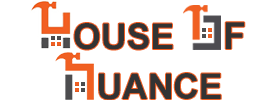


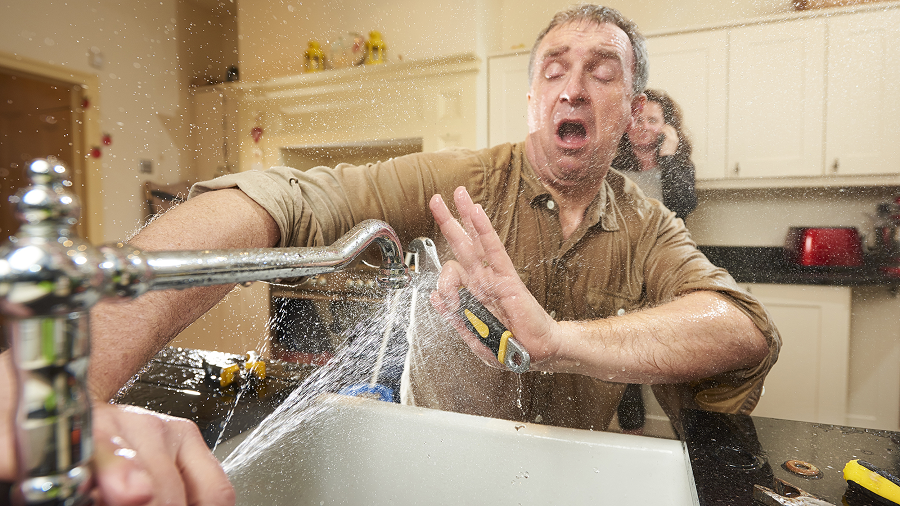

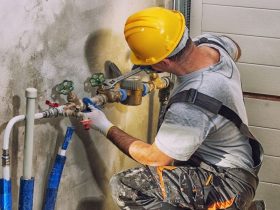

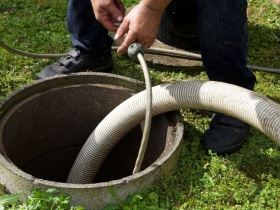
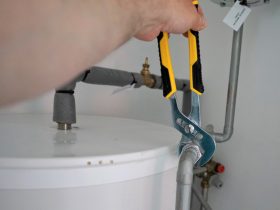
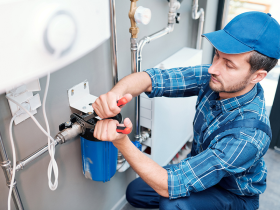
Leave a Reply